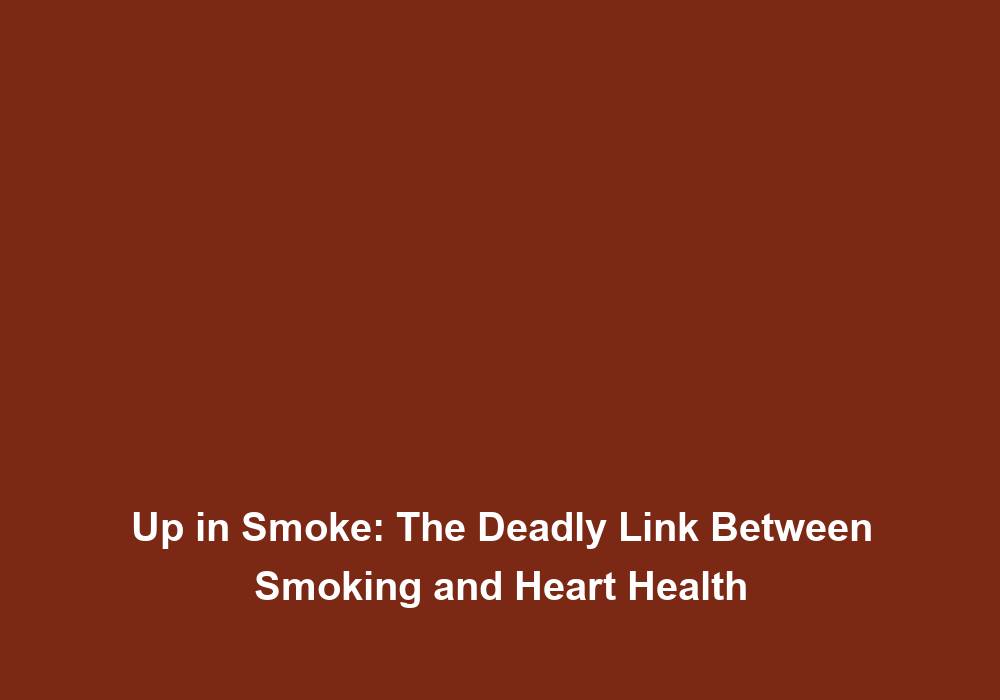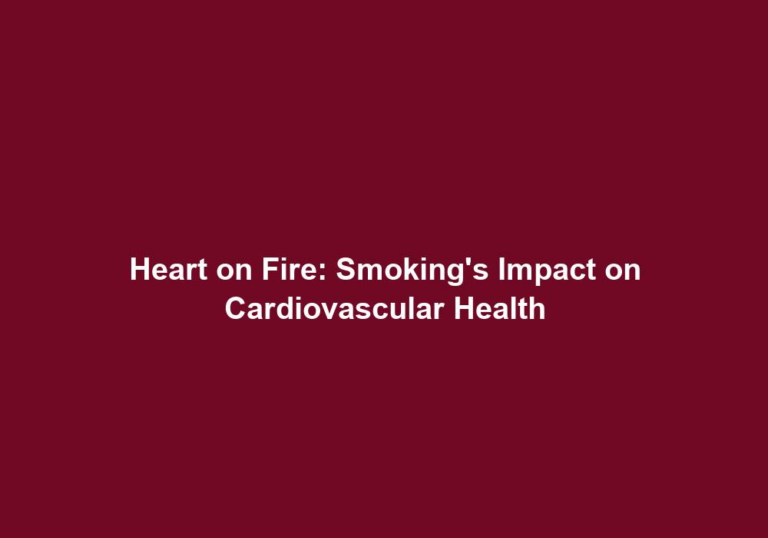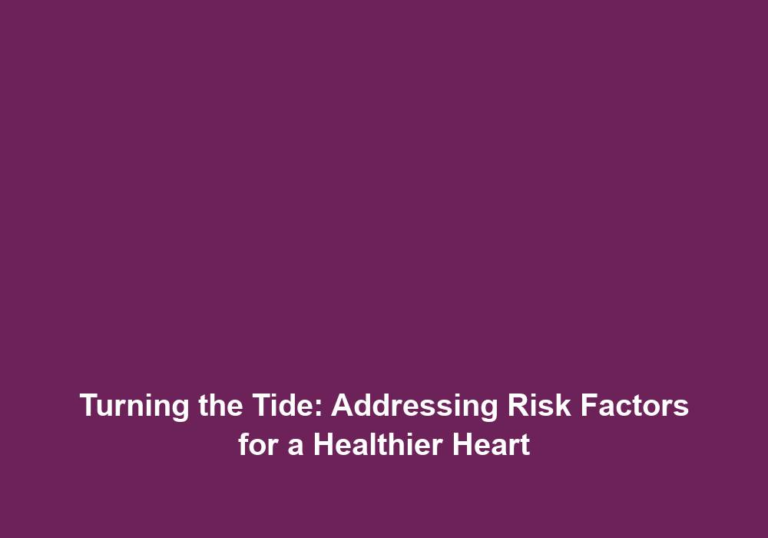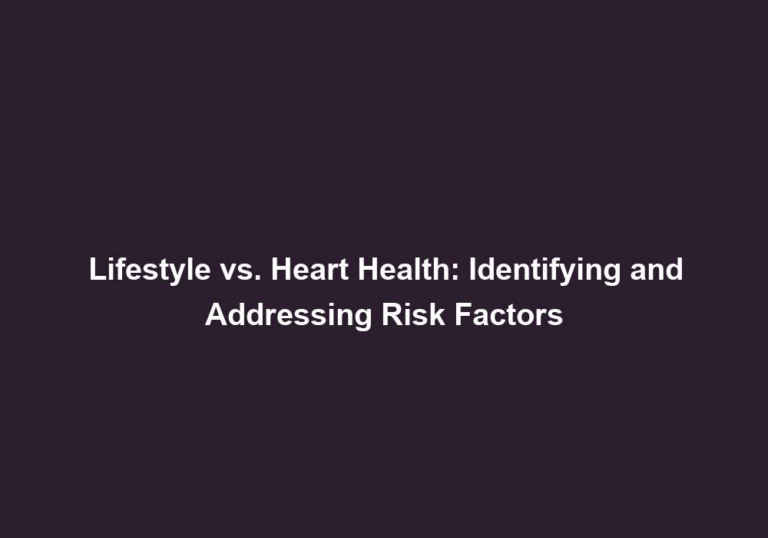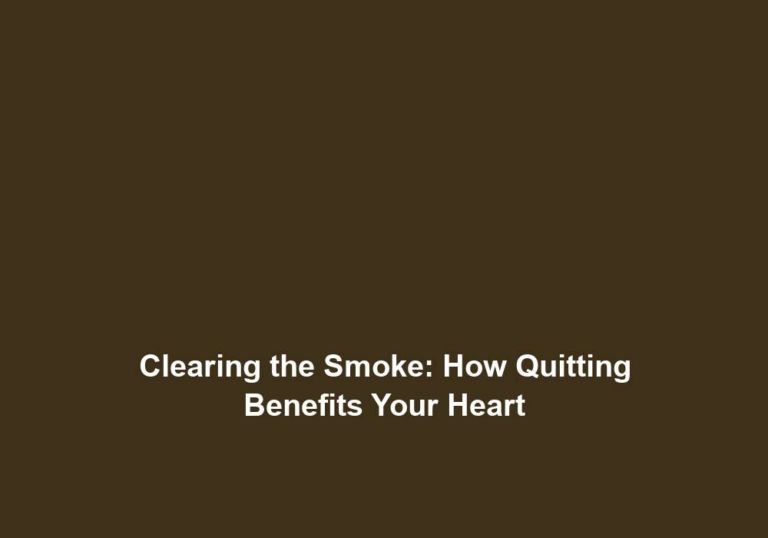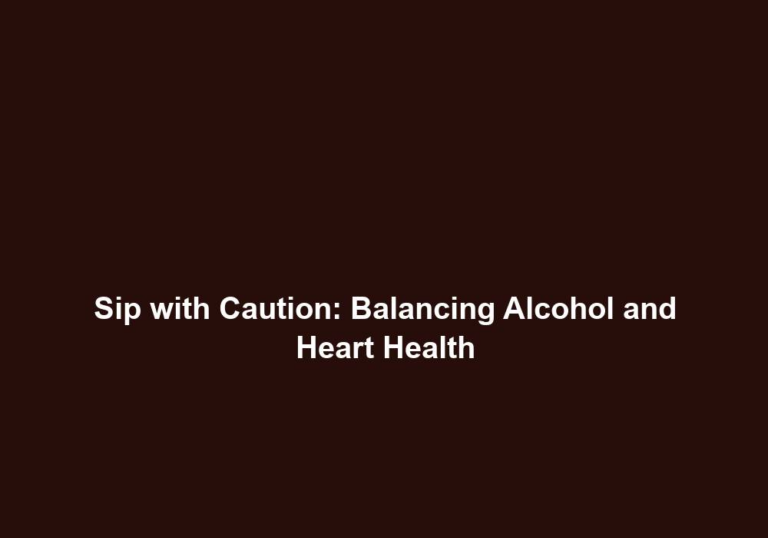Up in Smoke: The Deadly Link Between Smoking and Heart Health
Smoking has long been recognized as a detrimental habit that causes numerous health issues. However, the link between smoking and heart health is particularly alarming. The detrimental effects of smoking on the cardiovascular system cannot be understated, and in this article, we will delve into the specifics of this deadly link. By highlighting the dangers of smoking and its impact on heart health, we aim to raise awareness and encourage individuals to prioritize their well-being.
Smoking and Heart Disease: An Unhealthy Connection
Understanding the Link
Smoking plays a significant role in the development and progression of heart disease. When tobacco smoke is inhaled, harmful chemicals are released into the bloodstream. These chemicals lead to the accumulation of fatty substances in the arteries, a process known as atherosclerosis. Over time, atherosclerosis narrows the arteries, restricts blood flow, and increases the risk of developing heart-related problems.
Increased Risk of Cardiovascular Conditions
- Coronary Artery Disease (CAD): Smoking is a major risk factor for CAD, a condition characterized by the buildup of plaque in the coronary arteries. This buildup reduces the blood supply to the heart muscles, leading to chest pain, heart attacks, and even heart failure.
- Stroke: Smoking doubles the risk of stroke by narrowing and hardening the blood vessels that supply the brain. This increases the likelihood of blood clots or ruptured vessels, resulting in brain damage and potential disability.
- Peripheral Artery Disease (PAD): Smoking significantly raises the risk of PAD, a condition that affects blood flow to the limbs. This can lead to pain, infections, and, in severe cases, amputation.
The Mechanisms Behind the Damage
Impact on Blood Pressure
Smoking causes an immediate increase in blood pressure, placing strain on the heart and blood vessels. Over time, this continuous strain can lead to hypertension, a major risk factor for heart disease. Elevated blood pressure damages the arteries and increases the workload on the heart, thereby heightening the likelihood of heart attacks and heart failure.
Effect on Cholesterol Levels
Smoking disrupts the balance of cholesterol in the body by lowering the levels of good cholesterol (HDL) and increasing the levels of bad cholesterol (LDL). This imbalance contributes to the development of atherosclerosis and plaque buildup in the arteries, further compromising heart health.
Formation of Blood Clots
Smoking causes the blood to become stickier, increasing the risk of blood clots. These clots can block the arteries, leading to heart attacks and strokes. Moreover, smoking also reduces the body’s ability to dissolve blood clots, exacerbating the risk.
Secondhand Smoke: A Silent Danger
Impacts on Non-Smokers
It’s important to note that the consequences of smoking on heart health are not limited to smokers alone. Secondhand smoke, which is the combination of exhaled smoke and smoke from burning tobacco products, is equally harmful. Non-smokers exposed to secondhand smoke are at an increased risk of developing heart disease, lung cancer, and other respiratory issues.
Protecting Yourself and Others
- Create Smoke-Free Environments: Implementing smoke-free policies in homes, workplaces, and public spaces can significantly reduce exposure to secondhand smoke. By establishing these environments, both smokers and non-smokers can benefit from improved heart health.
- Support Smoking Cessation: Encouraging smokers to quit and providing resources like counseling, nicotine replacement therapy, and medications can help them successfully overcome their addiction. By supporting smoking cessation, we can reduce the prevalence of secondhand smoke and promote a healthier society.
Quitting Smoking: A Lifesaving Choice
Immediate and Long-Term Benefits
Quitting smoking has immediate benefits for the heart and overall health. Within minutes of quitting, heart rate and blood pressure decrease, leading to improved circulation. Over time, the risks of heart disease, stroke, and other smoking-related health problems gradually reduce. By making the decision to quit smoking, individuals can enhance their well-being and potentially add years to their lives.
Support for Smoking Cessation
- Seek Professional Help: Consulting healthcare professionals, such as doctors or counselors, can greatly increase the chances of successfully quitting smoking. These experts can provide personalized guidance and support throughout the quitting process.
- Nicotine Replacement Therapy (NRT): NRT, such as nicotine patches or gum, can help manage withdrawal symptoms and cravings, making the quitting journey more manageable. These products provide a safer alternative to smoking and aid in the transition to a smoke-free life.
- Behavioral Support: Joining support groups or attending counseling sessions can provide valuable guidance and encouragement throughout the quitting journey. Sharing experiences with others who are also quitting can foster a sense of community and motivate individuals to stay smoke-free.
In conclusion, the link between smoking and heart health is undeniably deadly. Smoking greatly increases the risk of developing heart disease, stroke, and other cardiovascular conditions. Understanding the mechanisms behind this damage and the dangers of secondhand smoke emphasizes the urgent need for individuals to quit smoking and create smoke-free environments. By taking the necessary steps to quit smoking, individuals can significantly improve their heart health and overall well-being, ultimately leading to a longer and healthier life.

